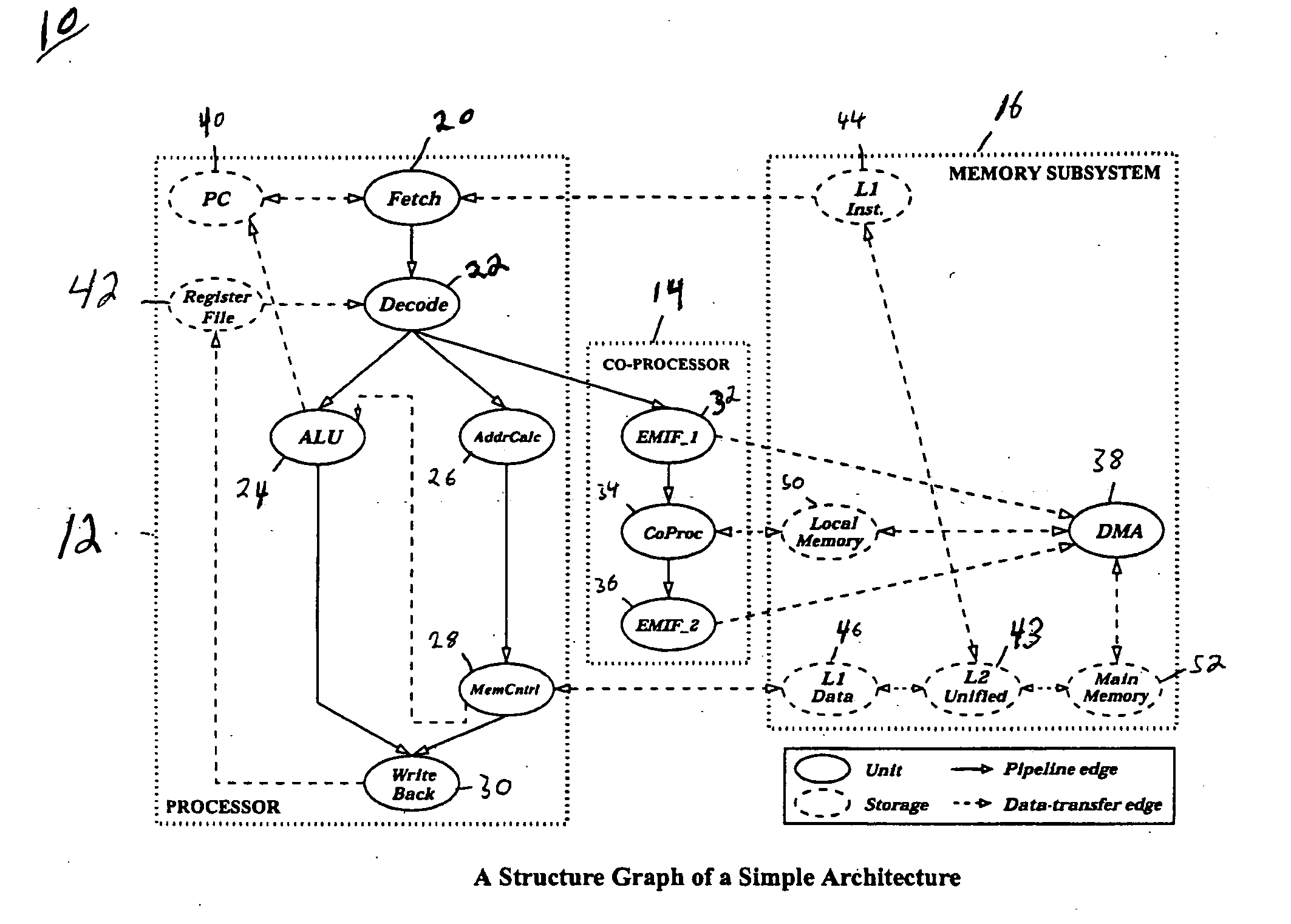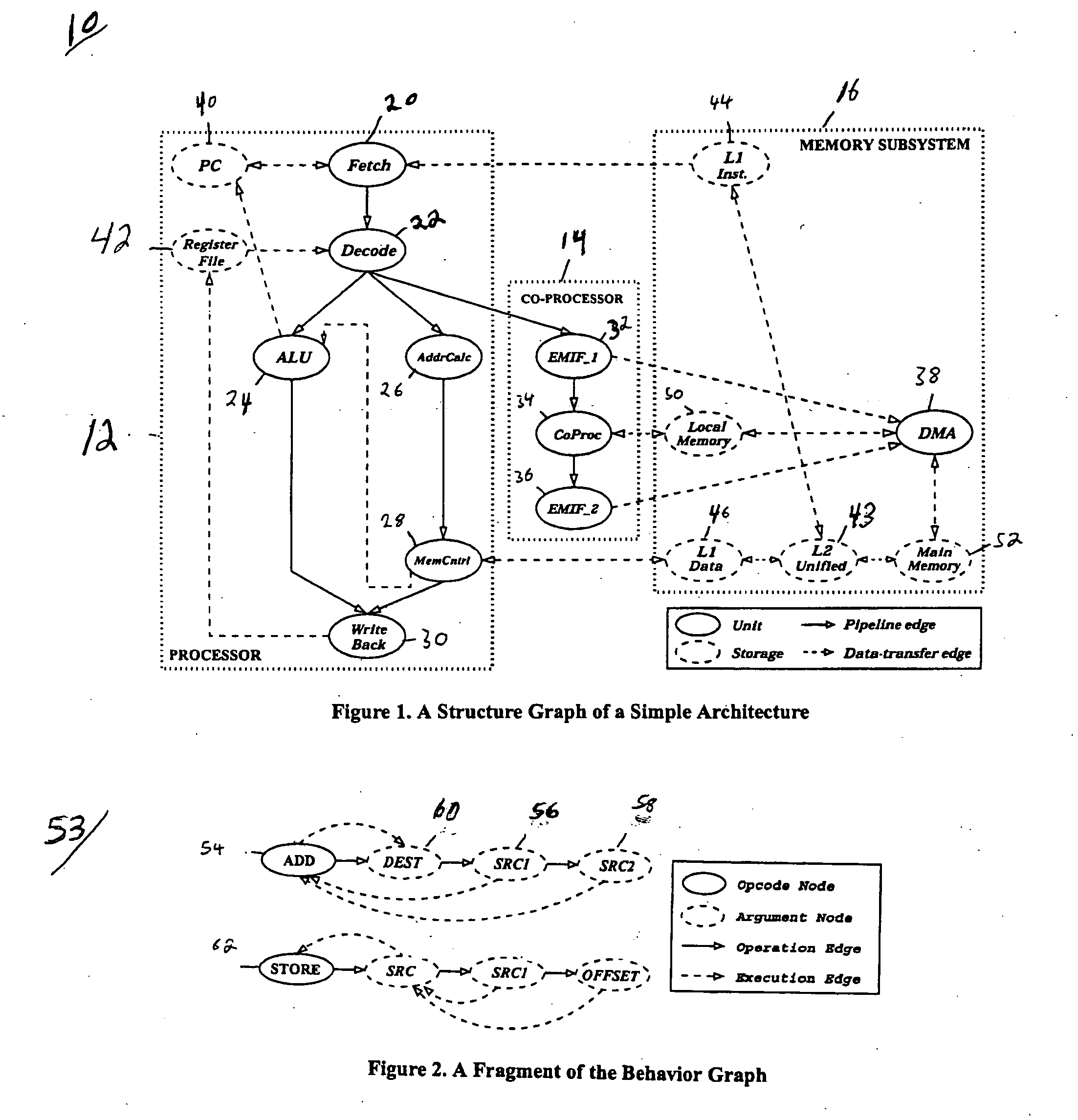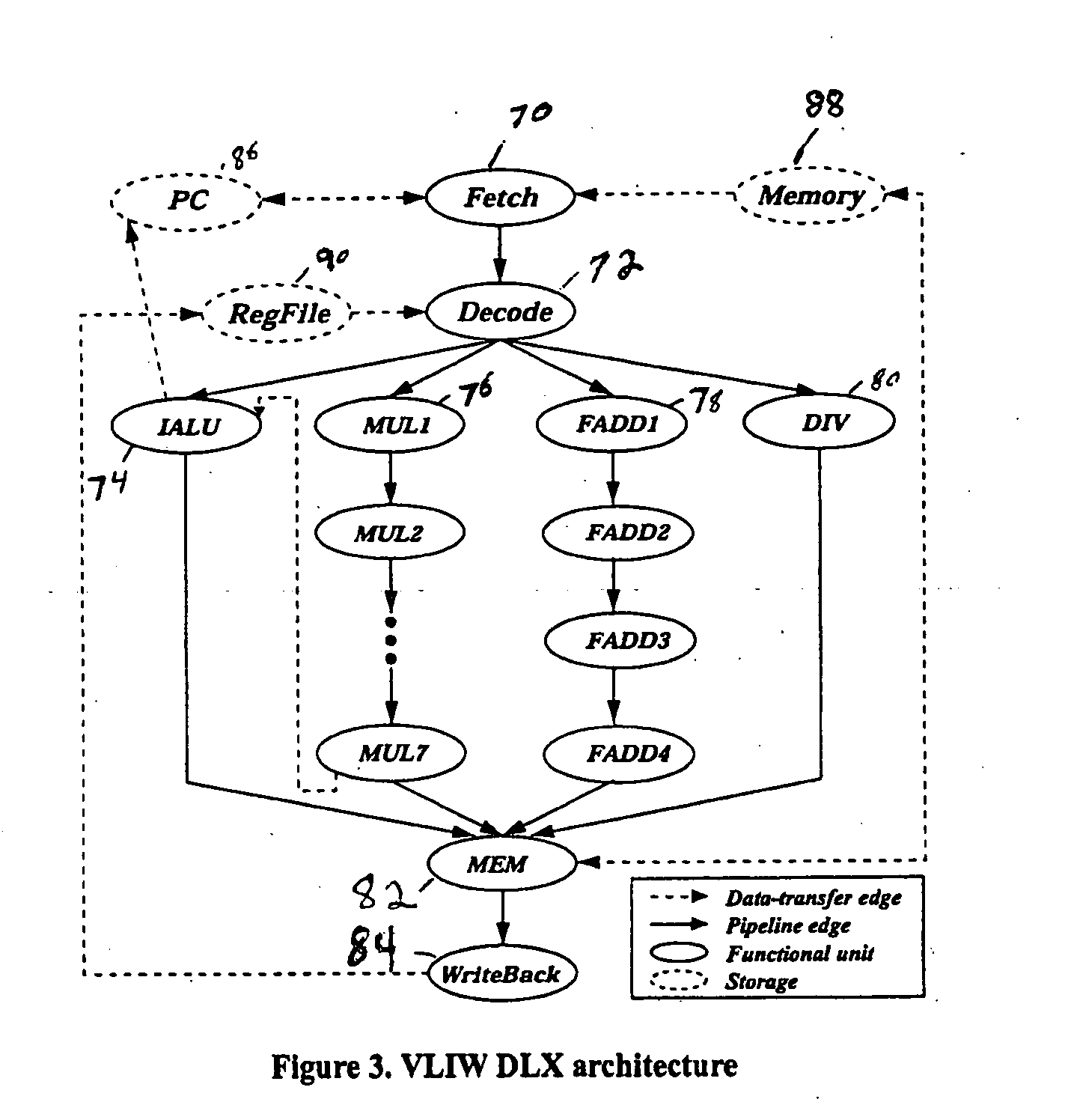Functional coverage driven test generation for validation of pipelined processors
a pipelined processor and functional coverage technology, applied in error detection/correction, instruments, computations using denominational numbers, etc., can solve the problems of no direct relationship between measures and device functionality, no measure determines whether, and the functional validation of such programmable processors is one of the most complex and expensive tasks, so as to reduce the time of test generation, speed up the generation of functional test programs, and handle larger designs
- Summary
- Abstract
- Description
- Claims
- Application Information
AI Technical Summary
Benefits of technology
Problems solved by technology
Method used
Image
Examples
Embodiment Construction
[0016] In an embodiment of the invention, generation of test programs for validation of pipelined processors begins with design of an architectural model of the processor to be validated. Among the aspects that should be considered in designing an efficient architectural model are the following considerations. First, the architecture model should be based on a functional description of the processor, such as the description available in a typical user's manual for the processor to be modeled. Second, the model should be able to treat the processor organization and instruction-set as parameters of the test generation procedures. Finally, the architecture model should be able to support a functional fault model describing faults in various computations performed by the processor. Consideration of these aspects will allow fault model developers to describe faulty behavior without requiring the developer to know the implementation details of the processor.
[0017] As shown in FIG. 1, a g...
PUM
 Login to View More
Login to View More Abstract
Description
Claims
Application Information
 Login to View More
Login to View More - R&D
- Intellectual Property
- Life Sciences
- Materials
- Tech Scout
- Unparalleled Data Quality
- Higher Quality Content
- 60% Fewer Hallucinations
Browse by: Latest US Patents, China's latest patents, Technical Efficacy Thesaurus, Application Domain, Technology Topic, Popular Technical Reports.
© 2025 PatSnap. All rights reserved.Legal|Privacy policy|Modern Slavery Act Transparency Statement|Sitemap|About US| Contact US: help@patsnap.com



